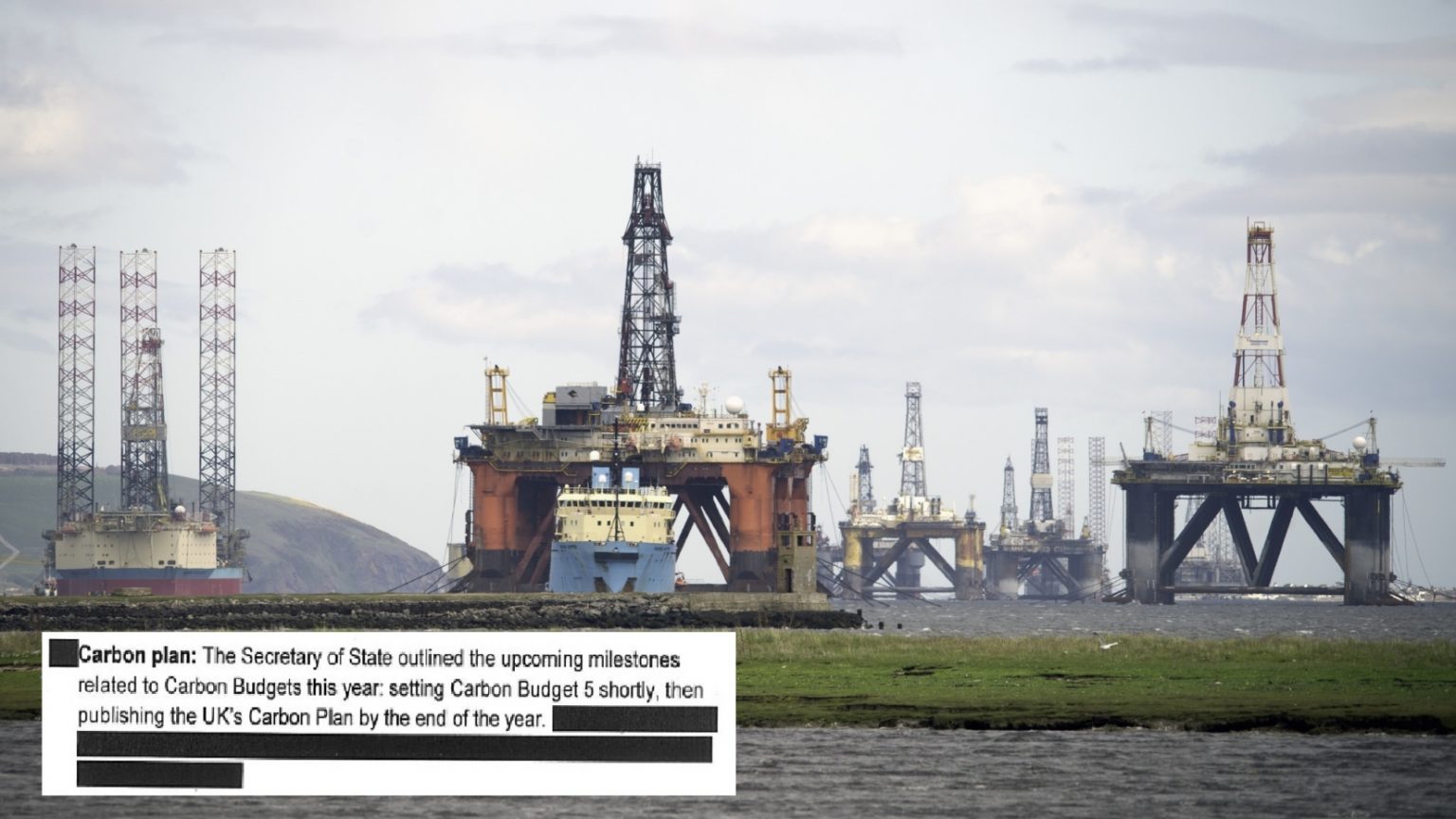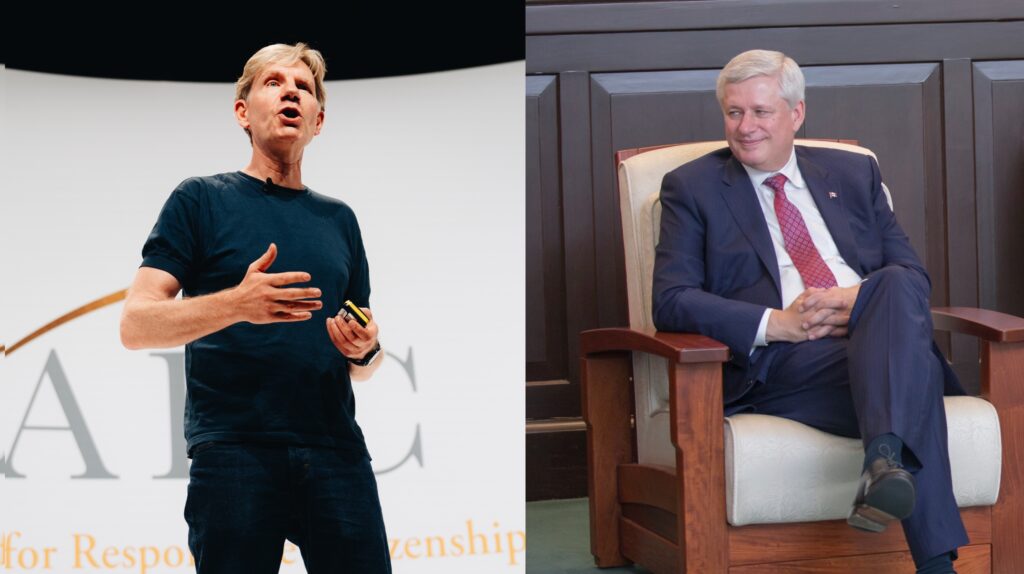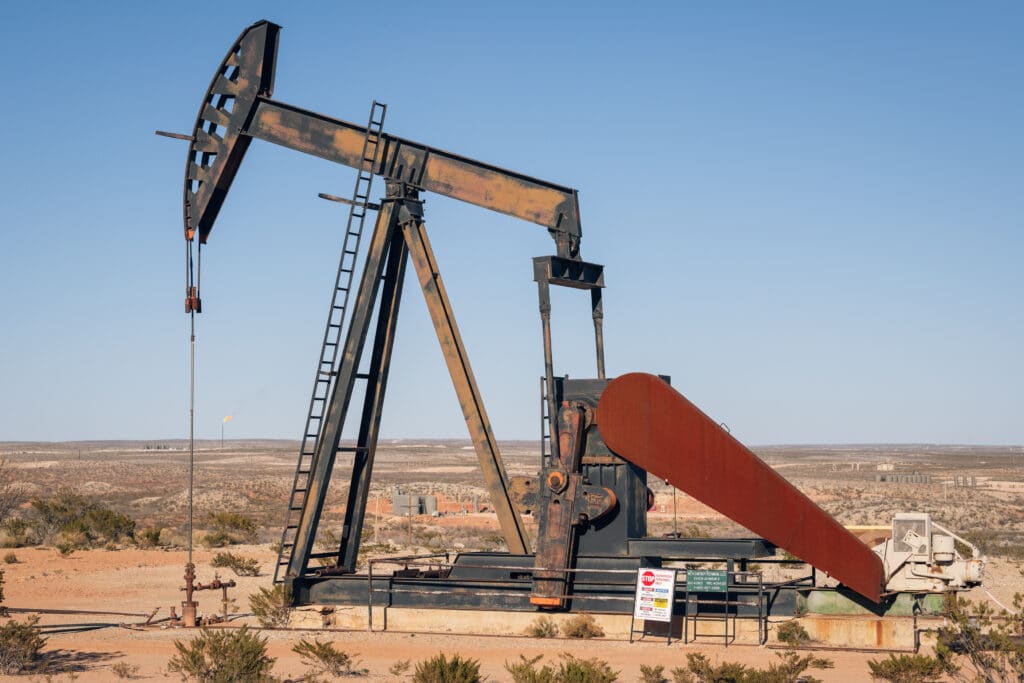Oil giants Shell and BP lobbied government on its climate plans before and after the Paris COP21 conference, new documents seen by DeSmog UK reveal.
Minutes obtained through a Freedom of Information request show both of the fossil fuel companies spoke with former Energy and Climate Secretary Amber Rudd at least twice during her time at the Department for Energy and Climate Change (DECC).
The documents detail that in addition to the Paris climate conference, Rudd and the oil executives discussed gas as a transition fuel and the government’s general climate change plans, including the fifth carbon budget.
Rudd met with the oil majors in her role as a ‘contact minister’ for the UK Trade and Investment (UKTI) Strategic Relations Team.
DeSmog UK has previously reported on this ‘strategic’ relationship between government and companies in the oil and gas sector as well as pharmaceuticals and technology.
The aim of the UKTI Strategic Relations Team is to encourage communication between various governmental departments that deal with the largest investors and exporters. According to government guidelines, contact ministers “have a crucial role in strengthening the relationship between Government and companies.”
As part of this, ministers are required to meet with their assigned companies at least every six months. Rudd was assigned the role shortly after being appointed the head of DECC in May 2015.
While there is no word yet on who in Theresa May’s new cabinet will be assuming the role of oil and gas contact minister, which now appears to fall under the Department for International Trade, these documents illustrate the cosy reationship between the oil majors and government, and the likely degree of communication expected for whoever is assigned this position going forwards.
‘Very Powerful’
The summary of a 14 July 2015 meeting with BP reads: “The SoS [Secretary of State] thanks DS [Dev Sanyal, BP executive vice president of strategy and regions] for the helpful letter on Paris COP21. The SoS reiterated her commitment to the deal in Paris, and her mandate on this issue from the PM [Prime Minister].”
The minutes go on to show that BP emphasised its focus on gas, making “clear that gas is not only an important transition fuel, but it is also important in the end-state (because of intermittency issues).”
They continue: “DS relayed a statistic that Bob Dudley had used to launch the BP Statistic Review of World Energy in June: ‘Switching just 1% of coal fired power generation to gas-fired cuts emissions as much as increasing renewable output 11%’ – the SoS thought this was very powerful.”
The second meeting with BP on 25 April 2016 saw discussion on BP’s North Sea oil production and its push for a trade envoy in Azerbaijan, along with the announcement than Sanyal had become BP’s new chief executive of alternative energy.
Shell on Climate Change
Meanwhile Rudd’s meetings with Shell took place in February and April of this year. These show Shell requesting a discussion on the government’s climate plans.
A description of a 15 February phone call between Shell and Rudd reads: “Erik Bonino [chairman and executive vice president of downstream technology at Shell UK] asked for a follow-up meeting with the Secretary of State to discuss the Government’s climate change and security of supply agendas, which the Secretary of State agreed to.”
They then met on 19 April to discuss, among other things, the government’s carbon plans.
The minutes read: “The Secretary of State outlined the upcoming milestones related to Carbon Budgets this year: setting Carbon Budget 5 shortly, then publishing the UK’s Carbon Plan by the end of the year. [redacted].”
It continues: “Shell noted their support for a more widespread carbon price, to which the Secretary of State highlighted the Government’s support for a strengthened EU carbon price through reform of the EU ETS [Emissions Trading Scheme]. She also noted the Government’s commitment to supporting investment in new gas, through recent changes to the capacity market.”
Shell BP DECC UKTI Strategic Relations FOI 2016_DeSmogUK by Anonymous PxdNRM on Scribd
Photo: North Sea oil rigs by Michael Elleray via Flickr
Subscribe to our newsletter
Stay up to date with DeSmog news and alerts







